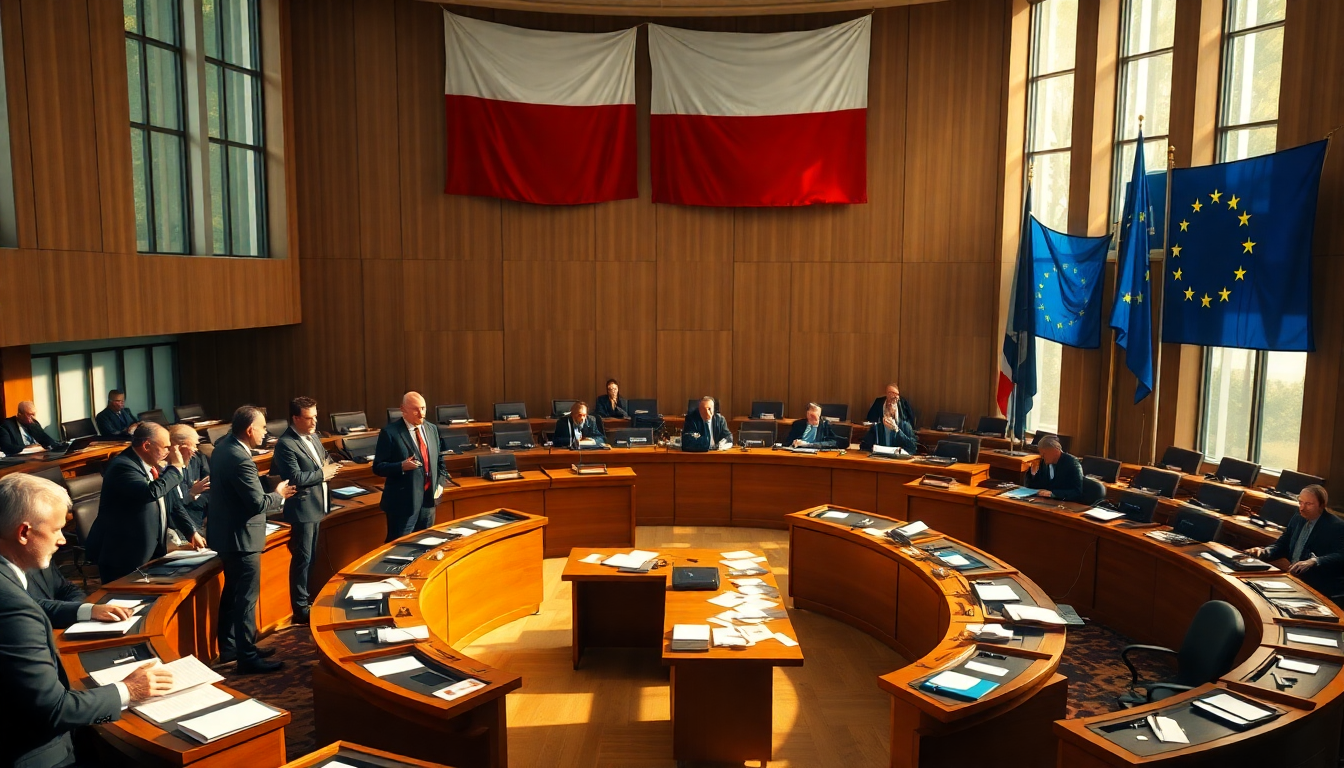Table of Contents
The political landscape in Poland is anything but straightforward these days. Prime Minister Donald Tusk is in a bit of a balancing act, trying to strengthen his centrist, pro-EU coalition. One figure who has emerged as a key player in this scenario is Szymon Hołownia. His party holds a substantial number of seats crucial for Tusk’s majority, but recent developments have raised eyebrows about Hołownia’s alliances and how stable this coalition really is, especially with a right-wing opposition starting to gain traction.
Current Political Dynamics and Challenges
Things took a turn when Karol Nawrocki, a nationalist, was elected president, putting Tusk’s government in a tight spot. With the Law and Justice party (PiS) backing Nawrocki, Tusk’s proposed reforms now face a serious risk of vetoes. In politics, every seat counts, and Tusk’s coalition is feeling the heat right now.
At the heart of this political storm is Szymon Hołownia, who has stepped up as the speaker of parliament. His party, Polska 2050, holds 31 seats and is a vital ally for Tusk. Yet, there’s growing concern surrounding Hołownia’s recent engagements with PiS officials. Meetings with PiS Chairman Jarosław Kaczyński have raised questions about where Hołownia’s true loyalties lie—could he be courting the right-wing party? If so, that could seriously jeopardize Tusk’s coalition stability.
Despite Hołownia’s claims of merely wanting to have open discussions across the political spectrum, the timing of these meetings couldn’t be more controversial. His party’s poll numbers have dipped alarmingly to just 2.8%, which emphasizes the stakes involved. The pressure for coalition unity is immense; any misstep could lead to devastating consequences in upcoming elections.
Implications of Hołownia’s Position
Hołownia’s role isn’t just about numbers—it’s about the very essence of Polish politics. He started as a promising centrist outsider with a socially progressive agenda, but recent elections have shown a different story; he barely secured 5% of the votes in 2023, leading many to question his political future.
His party, once allied with the agrarian PSL in a coalition called the Third Way, is now facing the reality of a split, which could isolate him further in parliament. As the political scene changes, the fallout from his decisions makes it likely that Polska 2050 might find itself sidelined, especially as rumors swirl that he might soon step down from his role as speaker.
With the potential for new elections looming large, current polls suggest Tusk’s coalition could lose its grip on power to a revitalized PiS. The fragility of Hołownia’s position, coupled with the accusations of flirting with the right, highlights just how unpredictable Polish politics can be and the difficulties of keeping a coalition intact amidst competing interests.
Future Outlook for Tusk’s Coalition
Looking ahead, the path for Tusk’s coalition is shrouded in uncertainty. The combination of a nationalist president and a splintered political environment makes it tough to push forward with reform agendas. Tusk has to tread carefully, balancing the needs of his coalition partners while fending off threats from the right.
Building strategic partnerships and maintaining clear communication among coalition members will be essential in the coming months. Tusk’s knack for unifying his allies and countering the right-wing opposition could very well dictate not just the success of his reforms but also the long-term stability of his government. With rising discontent among coalition partners, Tusk’s challenges are mounting.
As the political drama in Poland unfolds, keeping an eye on the interactions between pivotal figures like Tusk and Hołownia will be key to understanding where the country is headed and what it means for the broader European Union landscape.


